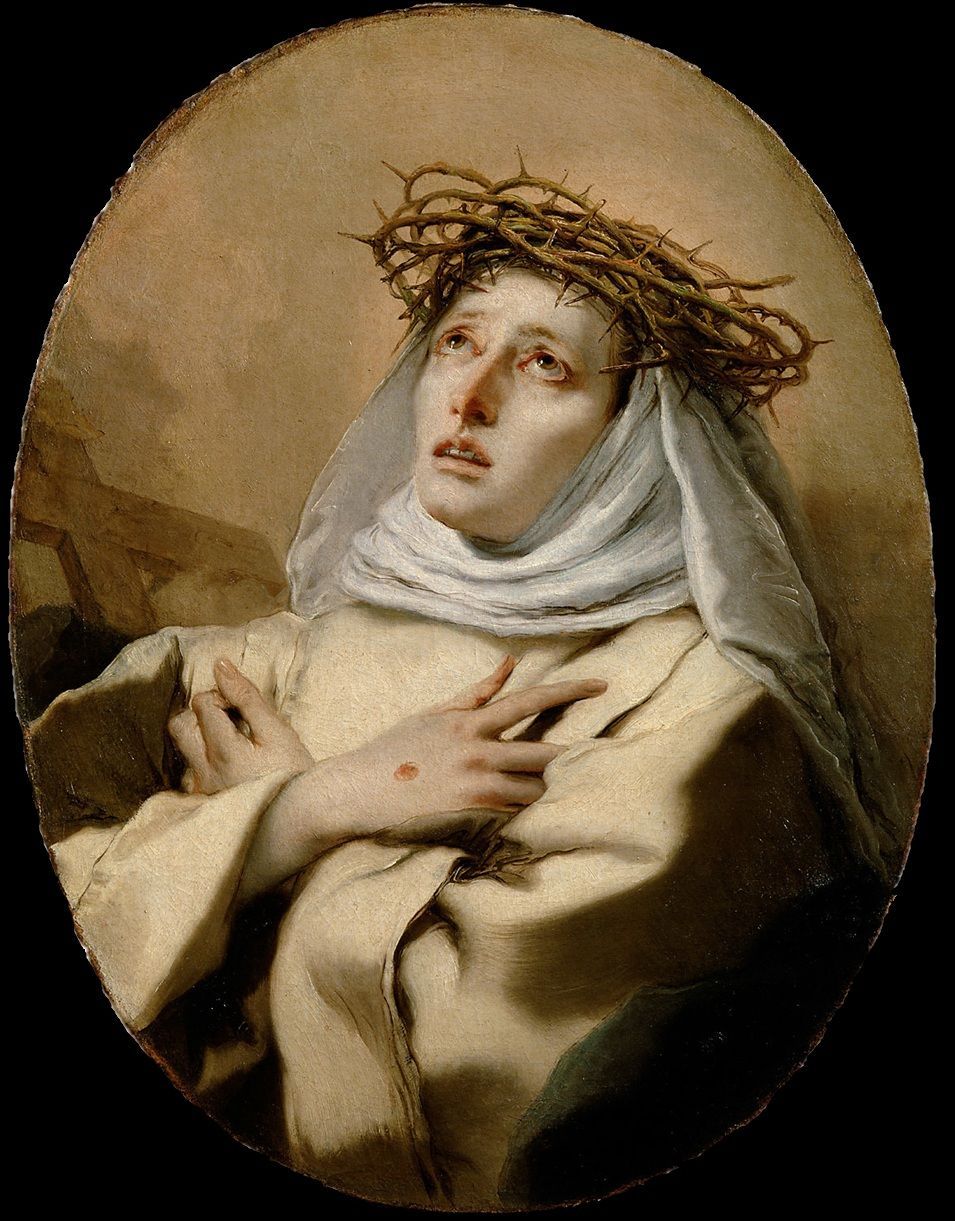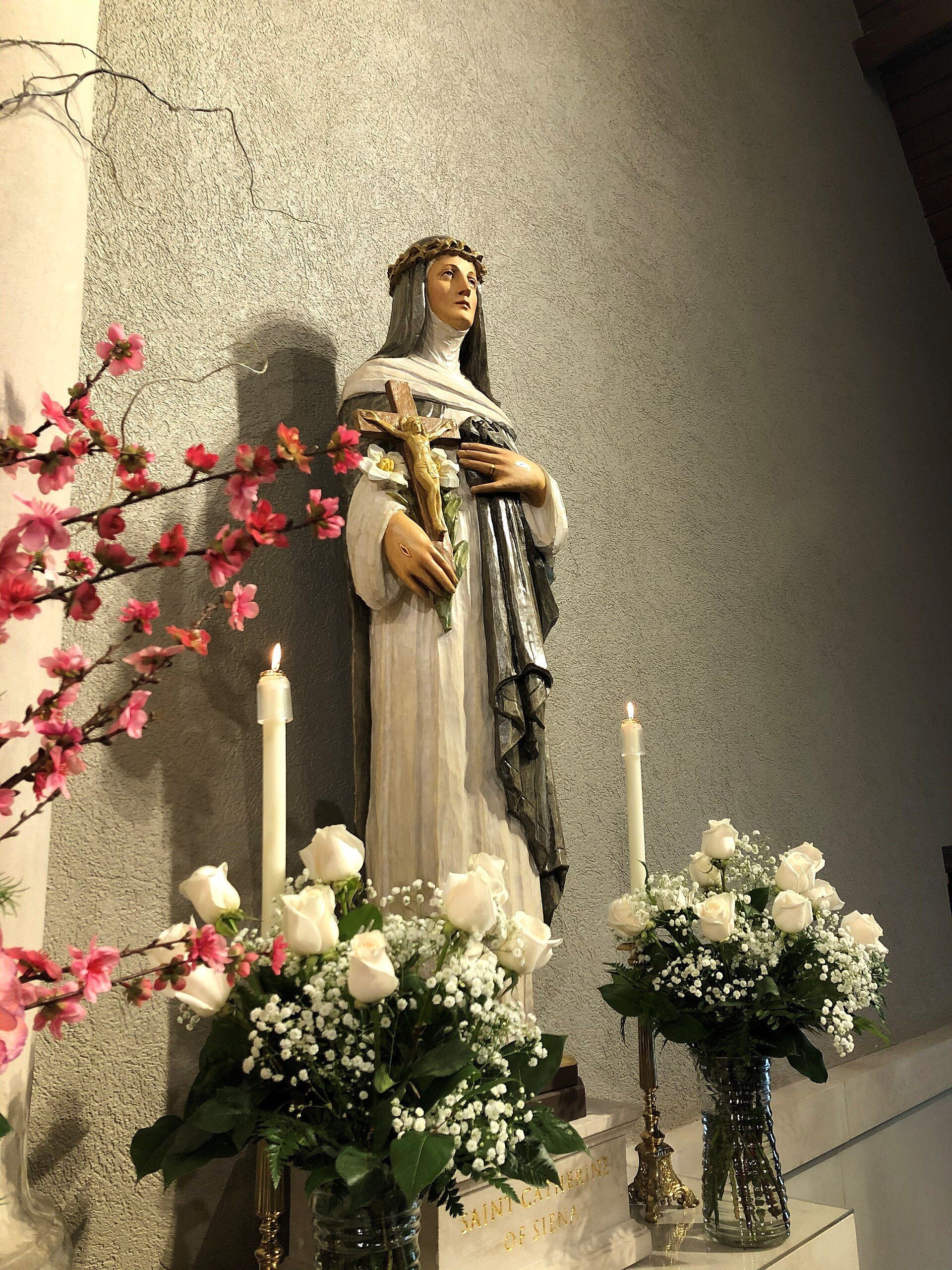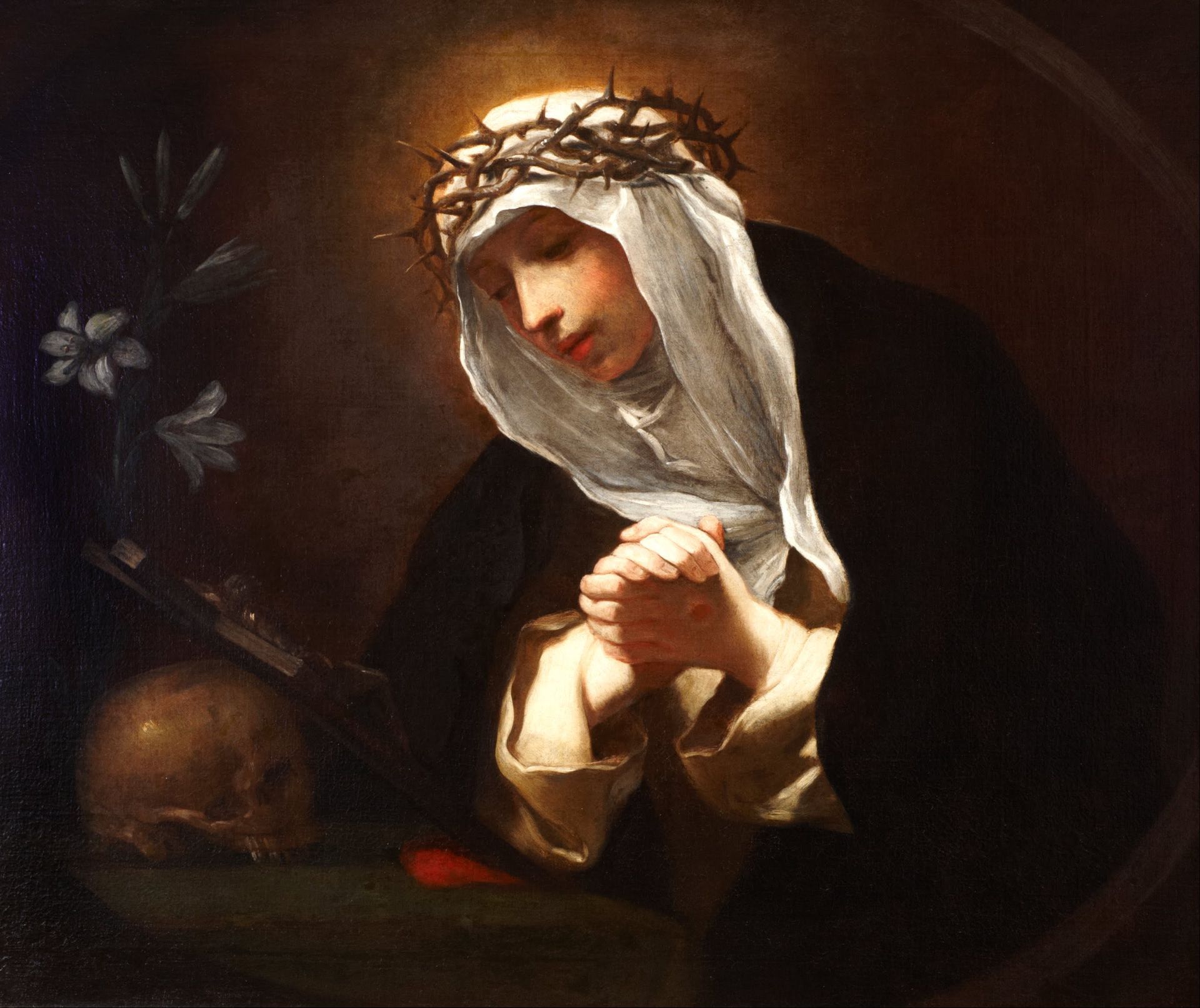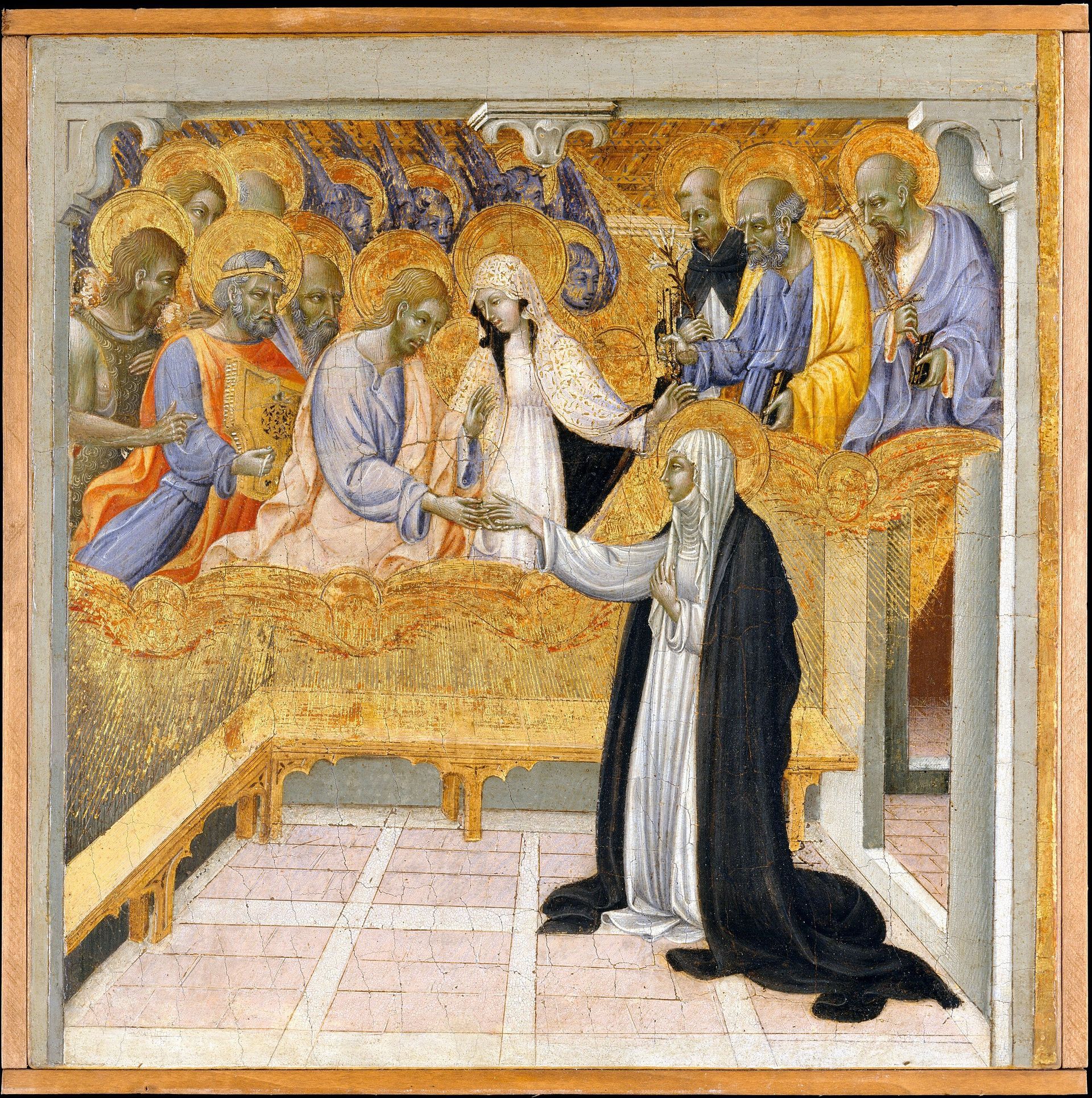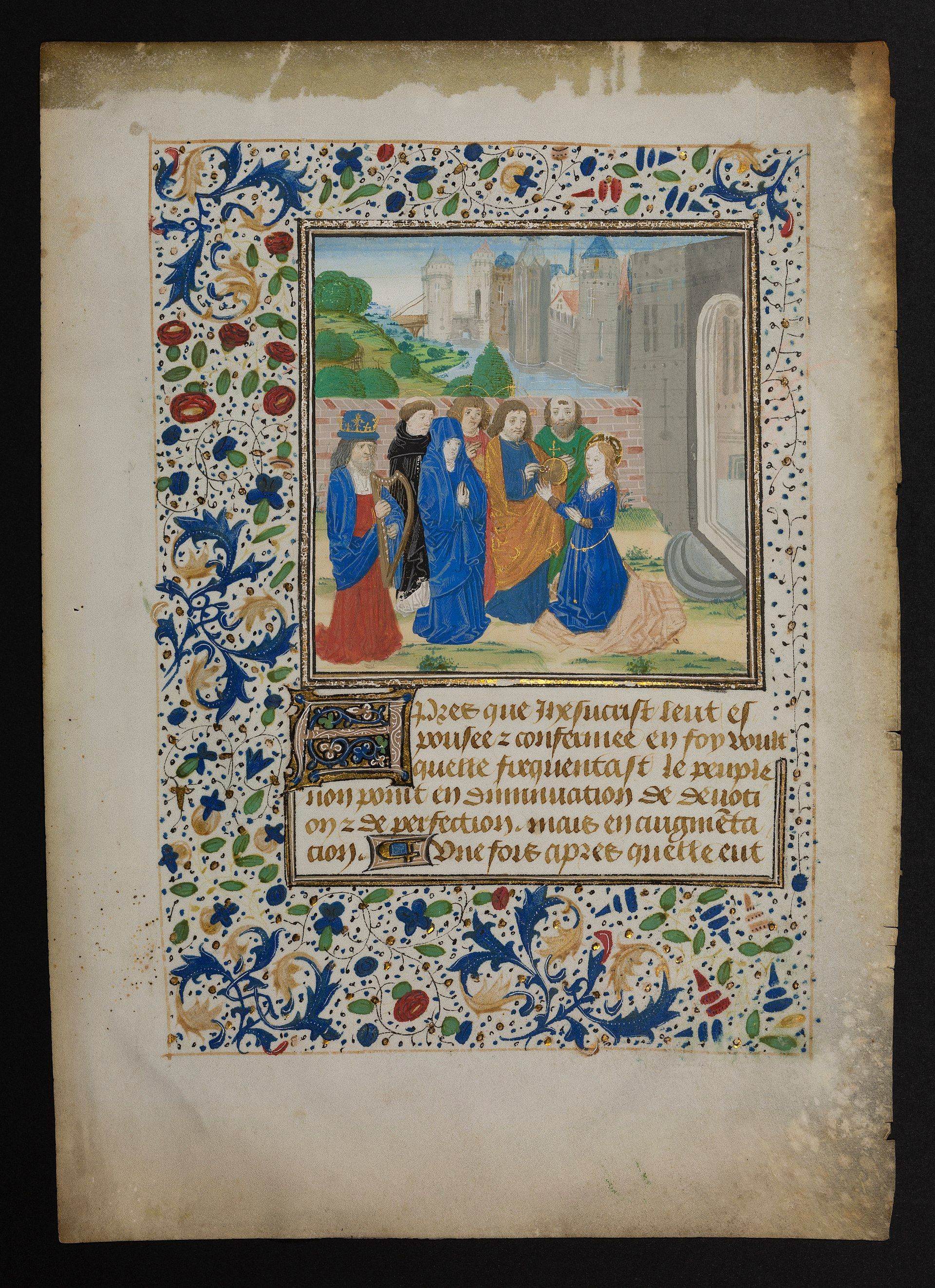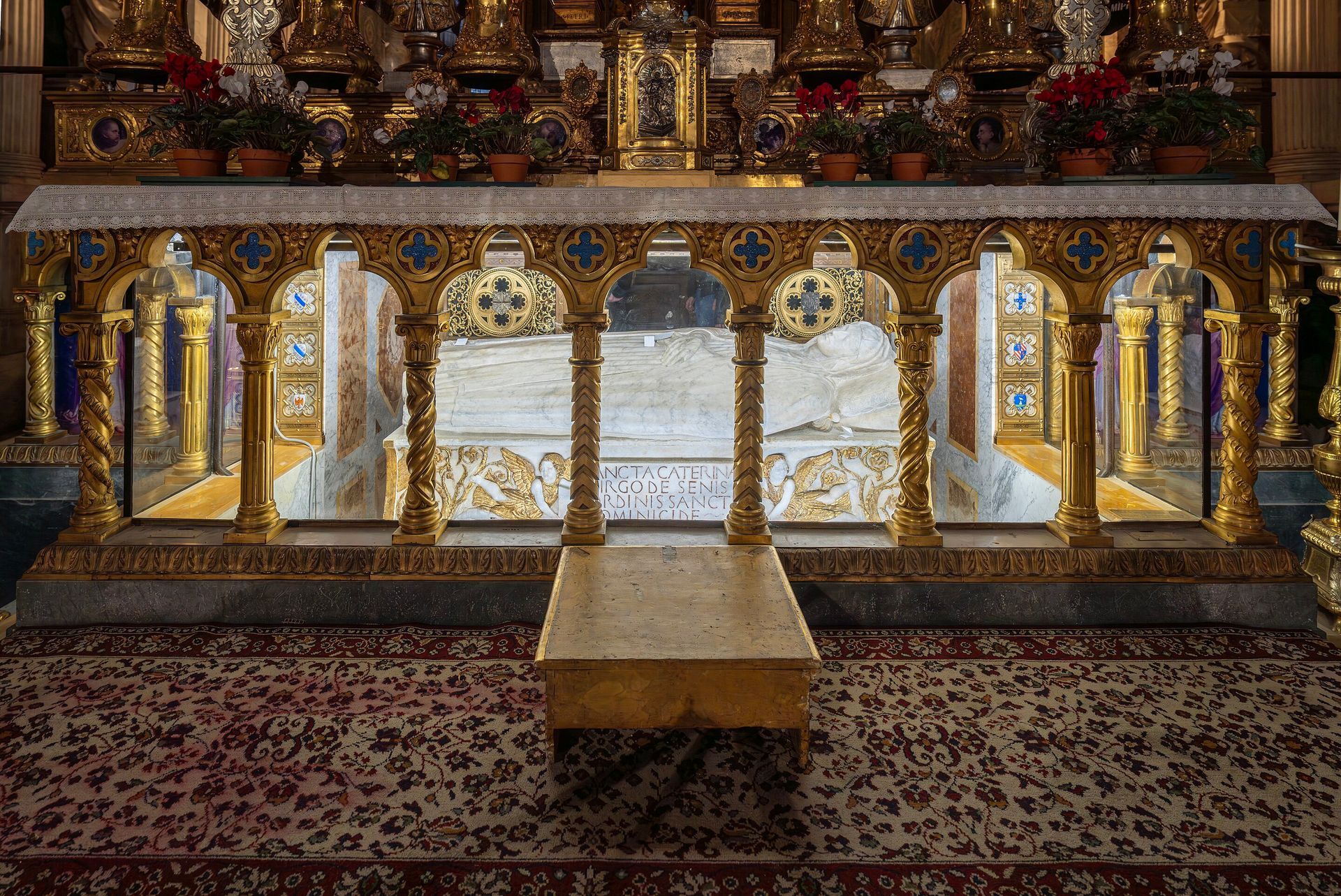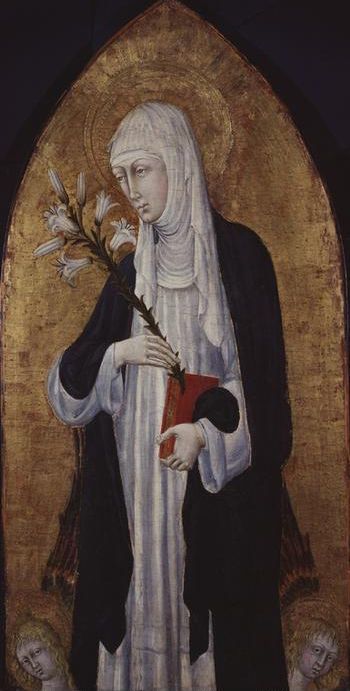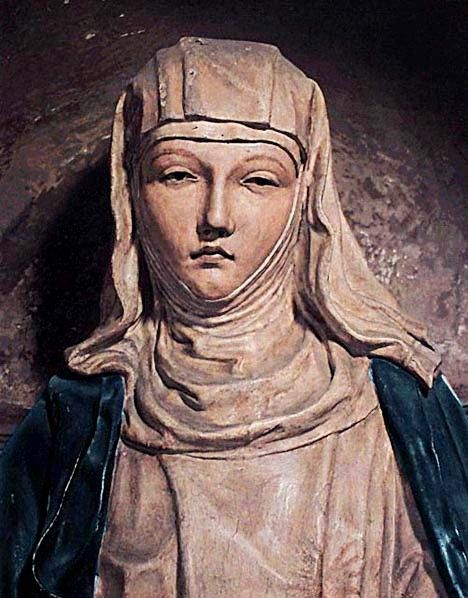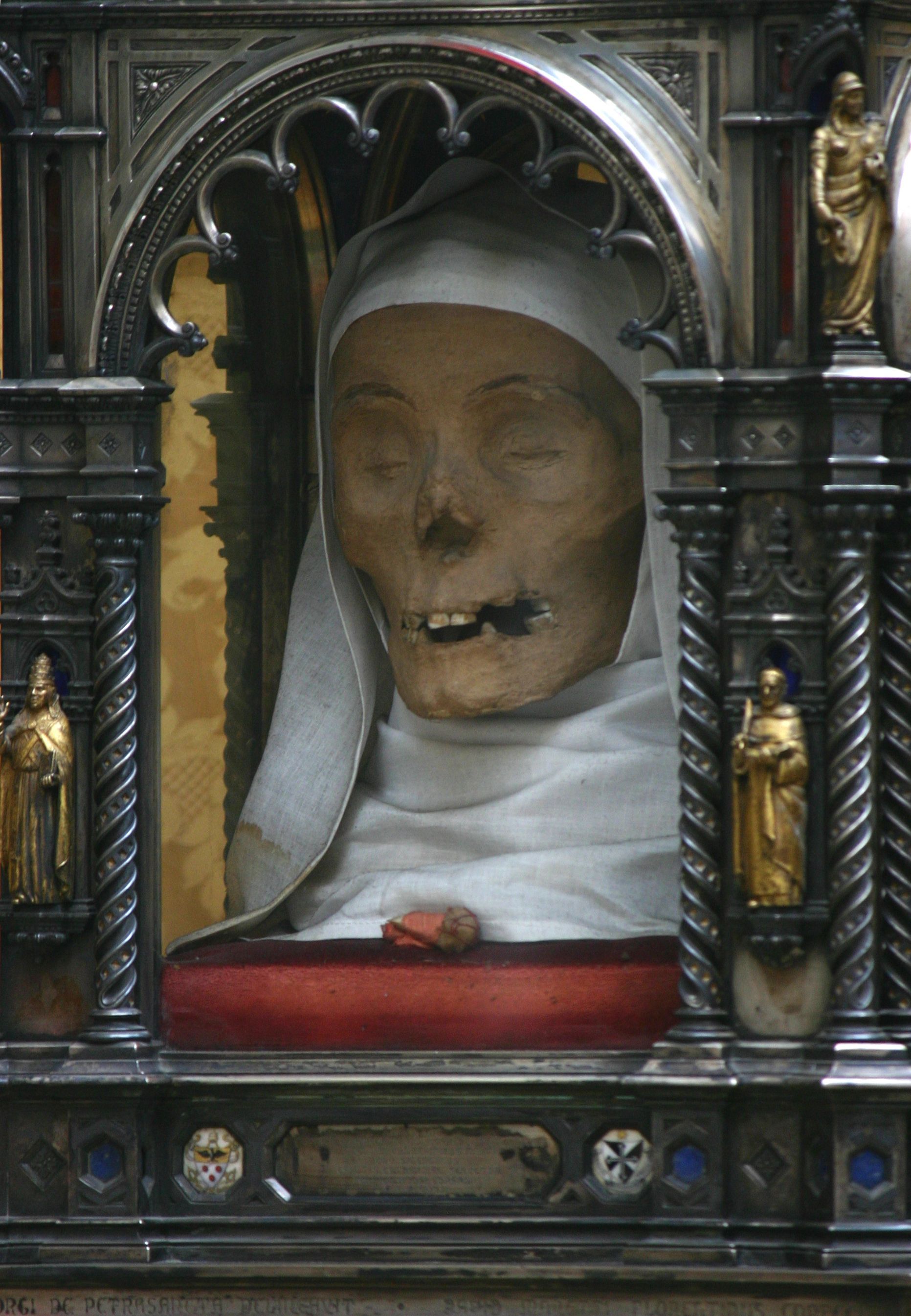Message of Abbot Paul - Monday - 29th April 2024
Abbot Paul • April 28, 2024
Today we celebrate the feast of an extraordinary woman, St Catherine of Siena, who died on this day in the year 1380 aged just 33, exhausted by her vigorous fasting. Although always depicted in a Dominican habit, she wasn’t an enclosed nun but a lay associate of the Order. She was a mystic, a writer and a religious-cum-political activist, if that’s the right term. She was canonised on 29th June 1461 and was declared a Doctor of the Church by Pope St Paul VI in 1970. She is also a Patron of Europe. Catherine is one of the outstanding figures of medieval Catholicism, by the strong influence she had on the history of the papacy and her prolific writing. She was behind the return of the Pope from Avignon to Rome, and then carried out many missions entrusted to her by the Pope, something quite rare for a woman in the Middle Ages. Her Dialogue of Divine Providence, hundreds of letters, and dozens of prayers, also give her a prominent place in the history of spirituality as well as of Italian literature. She led a fascinating life from the moment of her birth until the Lord took her to himself. A good biography and immersion into her writings would be powerfully rewarding. She really is a most attractive figure.
The short Gospel passage chosen for her feast comes from Matthew, (Mt 11: 25-30), those lovely words of Jesus addressed to his heavenly Father. “I bless you, Father, Lord of heaven and of earth, for hiding these things from the learned and the clever and revealing them to mere children. Yes, Father, for that is what it pleased you to do. Everything has been entrusted to me by my Father; and no one knows the Son except the Father, just as no one knows the Father except the Son and those to whom the Son chooses to reveal him.” Catherine was a mere child, just five years old, when she had her first mystical experience, a vision of Christ in glory. At the age of seven, she vowed to give her whole life to God. When in her teens, her parents wanted her to marry, but she refused, knowing that her vocation was to go beyond domestic duties and motherhood. Nor did she want to become a nun. She chose instead to live an active and prayerful life outside the convent walls following the model of the Dominicans. Just as the Father entrusted all things to Jesus, so she believed that God had entrusted her with an important mission, that of purifying and uniting the Church, and she wasn’t afraid to stand up and preach to the crowds or even to tell popes and princes what and what not to do.
Jesus continues with words of encouragement and consolation, words that were the very basis of Catherine’s life of devotion and service. “Come to me, all you who labour and are overburdened, and I will give you rest. Shoulder my yoke and learn from me, for I am gentle and humble in heart, and you will find rest for your souls. Yes, my yoke is easy and my burden light.” Jesus invites us all, as he did his beloved servant Catherine, to come to him for rest and support. We all get tired and overburdened, but Jesus is always with us to support and carry us. Our lives can be fruitful in weakness as well as in strength, but we must learn from Jesus to be both gentle and humble, opening our hearts to him and offering him our lives. Catherine was an exceptional woman, but in many ways, she was also quite ordinary, like you and me. Let us never lose courage or hope and let us ask her to pray for us and our loved ones. Catherine shines brightly among the mystics and spiritual writers of the Church. She remains a greatly respected figure for her writings and political boldness to "speak truth to power," it being exceptional for a woman, at that time, to have had such influence in politics and on world history. We pray for such women today.

